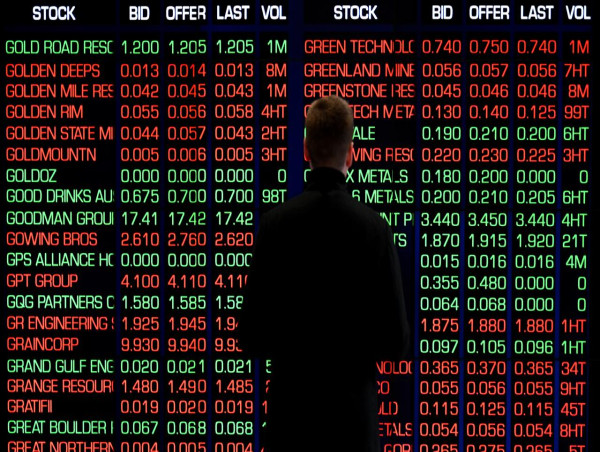The local share market has erased its morning losses after weaker quarterly inflation data seemed to increase the odds of the Reserve Bank leaving interest rates unchanged next week.
At noon AEST on Wednesday the benchmark S&P/ASX200 index was down 2.7 points, or 0.04 per cent, at 7,319.3, while the broader All Ordinaries was 6.2 points lower at 7,506.0.
The ASX200 was down as much as 0.5 per cent in morning trading but gained ground after the Australian Bureau of Statistics released March quarter Consumer Price Index data showing inflation coming in basically as expected.
Annual headline inflation eased to 7.0 per cent, from 7.8 per cent in the December quarter, with trimmed-mean inflation dropping from 6.9 per cent to 6.6 per cent.
Betashares chief economist David Bassanese said while inflation remained uncomfortably high, the data provided reassurance that consumer price rises had likely already peaked late last year and the Reserve Bank probably wouldn't need to raise rates again in 2023.
"I still see scope for a rate cut on or before Melbourne Cup (in November) as the economy slows – and especially if the currently red-hot US economy tips into recession," he wrote in a note.
At midday the ASX's 11 sectors were mixed, with four down, five up and two flat. Materials were the biggest losers, falling 0.5 per cent as iron ore prices continued to drop on China's plan to boost domestic production. Iron ore was selling for $US106.50 a tonne, its lowest level since early December.
BHP was down 0.6 per cent to $43.89, Fortescue Metals had fallen 1.2 per cent to $20.50, and Rio Tinto had dipped 0.7 per cent to $112.43.
Also, Mineral Resources had plunged 9.6 per cent to a six-month low of $72.68 after downgrading guidance for its mining services business and reporting weaker than expected third-quarter lithium sales.
Goldminers were higher, however, with both Newcrest and Northern Star adding around two-and-a-half per cent.
In the heavyweight financial sector, the big banks were mostly lower.
CBA was down 0.4 per cent, Westpac had dropped 0.2 per cent and NAB had fallen 0.3 per cent. ANZ was the outlier, basically flat at $24.23.
Synlait had plunged 21.4 to an all-time low of $1.54 after the New Zealand milk company announced it was now expecting a $5 million full-year loss, rather than a $5m profit after a key customer - believed to be US nutrition giant Abbott - had reduced its orders.
In foreign exchange, the Australian dollar had dipped to a near six-week low against the greenback, buying 66.22 US cents from 66.76 US cents at Monday's ASX close.




